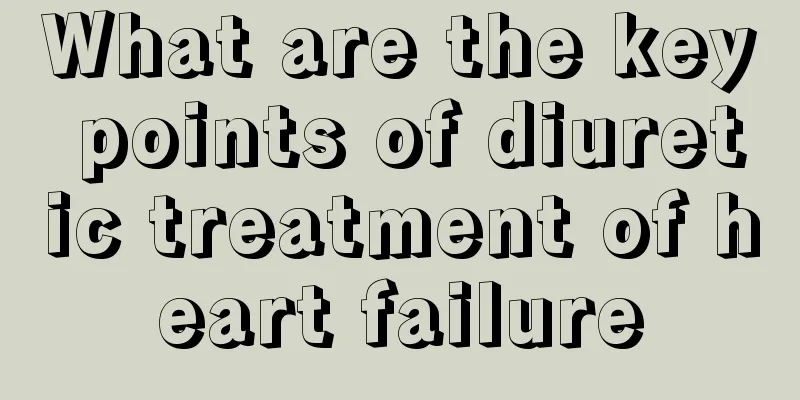What are the key points of diuretic treatment of heart failure

|
There are many patients with chronic heart failure in life. This situation is likely to develop into heart disease. Traditional treatment methods include cardiotonic, diuretic, and vasodilation. Among these methods, diuretics are the most effective and can effectively control the retention of body fluids. However, when using this method, there are also many methods that patients need to pay more attention to, otherwise the effect will be counterproductive. So what are the diuretics for the treatment of heart failure? First, what are the key points of using diuretics to treat heart failure? Remember to start with a small dose. The use of diuretics needs to start with a small dose and gradually increase the dose until the urine volume increases and the body weight decreases by 0.5 to 1.0 kg per day. Once the disease is under control, maintenance treatment at the lowest dose is recommended. It can be done once a day or every other day, or even 1 to 2 times/week. During long-term treatment, the dosage can be adjusted at any time according to fluid retention. The most reliable detection indicator is the daily change in body weight. Second, pay attention to combined medication. Diuretics play an important role in the treatment of fluid retention but should not be used as a single agent. The commonly used clinical treatment plan is to combine ACEI, ARB, beta-blocker and aldosterone receptor antagonist, which can increase the synergistic effect and shorten the patient's hospital stay, but the patient's renal function and electrolyte status need to be monitored. Third, monitor electrolytes regularly and promptly. Diuretic treatment of chronic heart failure may cause electrolyte disorders such as hypokalemia, hyponatremia, and hypochloremia, so it is necessary to promptly evaluate the patient's electrolyte levels. In terms of specific medical advice, potassium supplements can be given preventively at the beginning of diuretic treatment. There is no need to overemphasize salt restriction and control the diuresis rate. What are the key points of diuretic treatment of heart failure? Prevent hypotension. Large doses of diuretics can lower blood pressure, damage renal function, cause symptomatic hypotension, and lead to further deterioration of heart failure. Clinicians need to reduce the dose of diuretics and, if fluid retention persists during this period, in addition to continuing diuretics, use drugs such as dopamine or dobutamine in the short term to effectively increase renal perfusion. |
<<: What are the reasons why black coffee is a diuretic
Recommend
Things to note after gallbladder surgery, adjust your diet and recover as soon as possible
The most common gallbladder disease is gallstones...
Effects of Red Ghost
Red Ghost is mainly used to be worn on the body a...
How does traditional Chinese medicine treat glioma
Generally speaking, patients with tumors are trea...
How can I remove the birthmark on my face? Is there any method?
Some friends want to remove birthmarks because th...
How to preserve lipstick in summer
The weather is very hot in the summer, and lipsti...
Can I eat boiled peanuts if I have high blood sugar?
After the age of 30, we must prevent the onset of...
Is vaginal bleeding a sign of cervical cancer? What are the symptoms of cervical cancer?
Cancer is our greatest enemy, cancer is a maligna...
How to prepare and cook Gaji fish
I am a greedy cat because I love eating fish. I l...
What is the method of removing static dust from clothes
In winter, a relatively dry season, we often find...
Melanoma Staging
Melanoma is fundamentally different from moles. M...
What to do if hair is falling out on the forehead? Diet is very important
If you experience hair loss on your forehead, you...
What are the early symptoms of lung cancer? Introduction to several symptoms of early lung cancer
Lung cancer is a relatively common type of cancer...
What to do when acne breaks? How to squeeze it safely
After getting acne, many people will always touch...
What medicine should I take for sore throat caused by nasopharyngeal cancer
What medicine should I take for sore throat cause...
How to treat cerebral hemisphere tumors? What are the treatments for cerebral hemisphere tumors?
The clinical manifestations of tumors in differen...









